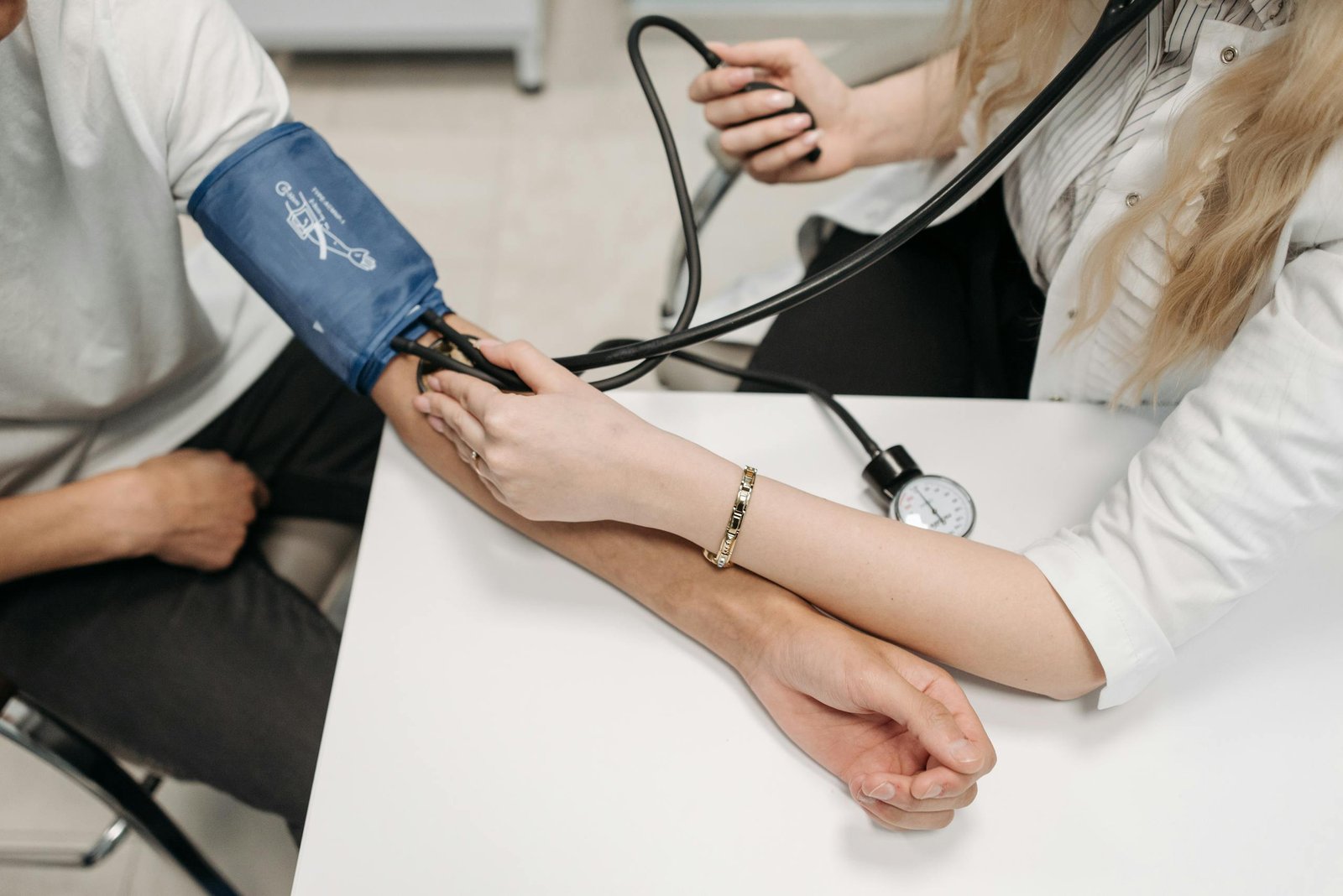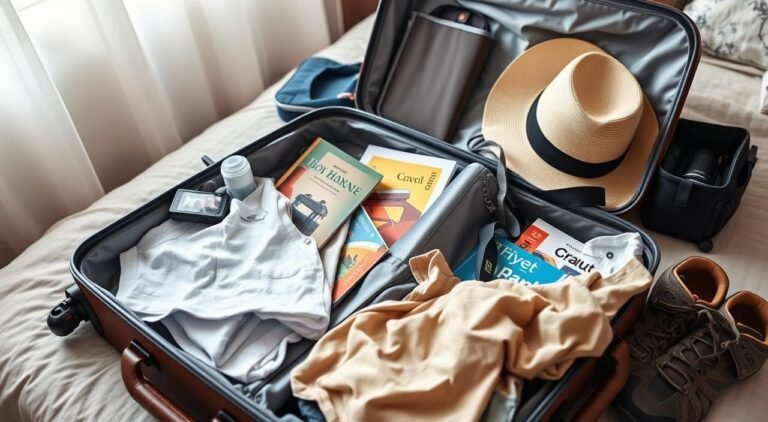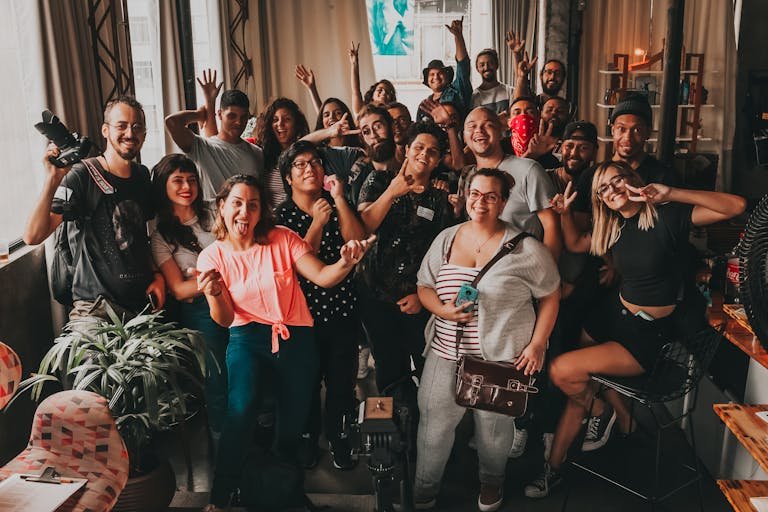Staying Health Whilst Slow Traveling
Slow travel lets us enjoy life at a relaxed pace. It’s great for our mental health and can reduce stress. But, for retirees and others, staying healthy on long trips needs careful planning.
This guide will help you stay healthy on your slow travel adventures. We’ll talk about getting ready before you go, managing health issues, and avoiding sickness. You’ll learn how to enjoy slow travel while keeping your health in mind.
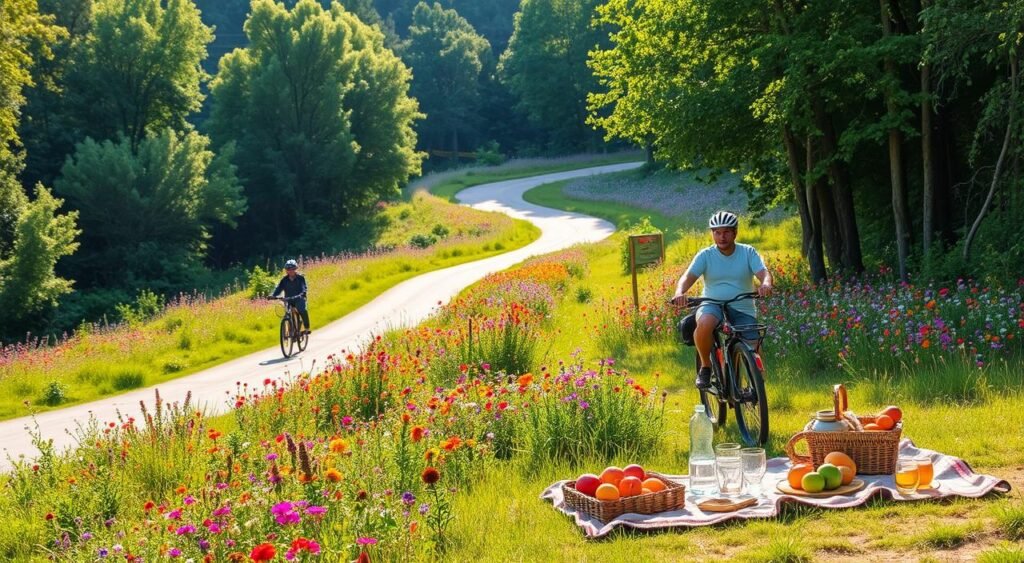
Key Takeaways
- Slow travel offers numerous health benefits, including reduced stress and increased mental stimulation.
- Pre-travel health preparations, such as medical check-ups and obtaining travel health insurance, are crucial for a safe and enjoyable journey.
- Maintaining a balanced diet, staying hydrated, and exercising during slow travel can help you feel your best.
- Healthcare considerations for traveling retirees, including managing chronic conditions and accessing emergency medical assistance, require special attention.
- Reducing travel stress and preventing travel-related illnesses are essential for a successful slow travel experience.
Pre-Travel Health Preparations
Starting our slow travel journey means we must focus on our health first. We should see our doctor 4-8 weeks before we leave. This ensures we have all the travel vaccinations we need and can talk about any health worries.
Medical Check-ups and Vaccinations
At our pre-travel doctor’s visit, we’ll check the vaccines needed for our destination. This might include shots for common illnesses like pneumonia and flu. We might also need vaccines specific to our travel area, like yellow fever.
Travel Health Insurance
Getting good travel health insurance is next. It should cover emergency medical costs, hospital stays, and pre-existing conditions. This is key because many travelers pay for medical expenses out of pocket.
Packing Medications and First Aid Kit
Lastly, we need to pack our medications, a first aid kit, and any medical gear we’ll need. It’s also wise to sign up for the Department of State’s Smart Traveler Enrollment Program (STEP). This helps with safety and emergency assistance while traveling.
By doing these important health checks before we travel, we can relax and enjoy our slow travel journey fully.
Maintaining a Balanced Diet
Keeping a balanced diet while slow traveling can be tough. But it’s key to keep your energy and immune system up. Start by packing healthy snacks like nuts, dried fruit, and granola bars. When you’re out, look up the local food to find good and safe places to eat.
Packing Healthy Snacks
Having different travel nutrition options can help you stay healthy. Here are some snacks to consider:
- Nuts (e.g., almonds, walnuts, cashews)
- Dried fruit (e.g., apricots, mango, raisins)
- Whole grain crackers or granola bars
- Fresh fruit (e.g., apples, bananas, oranges)
- Vegetable-based snacks (e.g., carrot sticks, celery, cherry tomatoes)
Researching Local Cuisine and Food Safety
When trying local foods, remember to think about food safety. Avoid raw foods, street food, and bushmeat to lower the risk of getting sick. Choose hot, cooked meals and bottled water to stay healthy.
To avoid getting sick, look up the local food and find safe places to eat. The Centers for Disease Control and Prevention and the U.S. Department of State have great info for travelers.
Keeping a balanced diet while slow traveling takes some planning. But it’s worth it to keep your body strong. By packing healthy snacks and researching local food, you can enjoy your travels while staying healthy.
Staying Hydrated
Keeping yourself hydrated is key to staying healthy while traveling. Dehydration can make you feel tired, give you headaches, and even lead to serious problems like heat exhaustion. By focusing on water safety and avoiding dehydration, you can dodge water-borne illnesses and stay energized on your travels.
Drink water often, even if you don’t feel like it. Thirst isn’t always a good sign of dehydration. A better way to check is by looking at your urine color. Doctors say to drink about 64 ounces of water daily, but this can change based on where you are, how active you are, and your health.
| Hydration Benefits | Dehydration Risks |
|---|---|
| Helps the heart pump blood more efficiently Supports muscle function and performance Regulates body temperature Aids in cognitive function and mood | Dizziness and fatigue Swollen feet and headaches Heat exhaustion and heat stroke Increased risk of water-borne illnesses |
If the local water isn’t safe, use bottled water or purify it with boiling, chemicals, or filters. Stay away from sugary and caffeinated drinks, as they can dry you out. By keeping yourself hydrated and focusing on water safety, you’ll enjoy your travels more and stay healthy.
“Hydration is crucial not only during physical activity but also in conditions like sitting in the sun, having a heart condition, being over 50, overweight, or traveling.”
Healthcare Considerations for travelling Retirees
As retirees and older travelers, we face unique healthcare needs. We must plan and prepare for our slow travel adventures. It’s key to maintain control over our healthcare to ensure a safe and enjoyable journey.
Managing Chronic Conditions
If we have chronic health conditions, we should talk to our doctors about managing them on our trip. We need to make sure we have enough medication and any necessary medical devices. It’s also important to research healthcare facilities, pharmacies, and emergency services at our destination. Keep a copy of our medical records handy.
Emergency Medical Assistance
Getting comprehensive travel insurance that covers pre-existing conditions is a smart move. The cost of an air ambulance trip abroad can be very high, from $50,000 to $150,000 or more. Travel medical insurance can help us avoid these costs and get the care we need in case of an emergency.
| Coverage | Average Cost |
|---|---|
| Travel Medical Insurance for a Week-Long Trip to Peru | $128 to $310 |
| Air Ambulance Trip in a Foreign Country | $50,000 to $150,000 or more |
By researching and preparing for our healthcare needs, we can enjoy our slow travel adventures with peace of mind. We’ll be ready to handle any medical challenges that come our way.
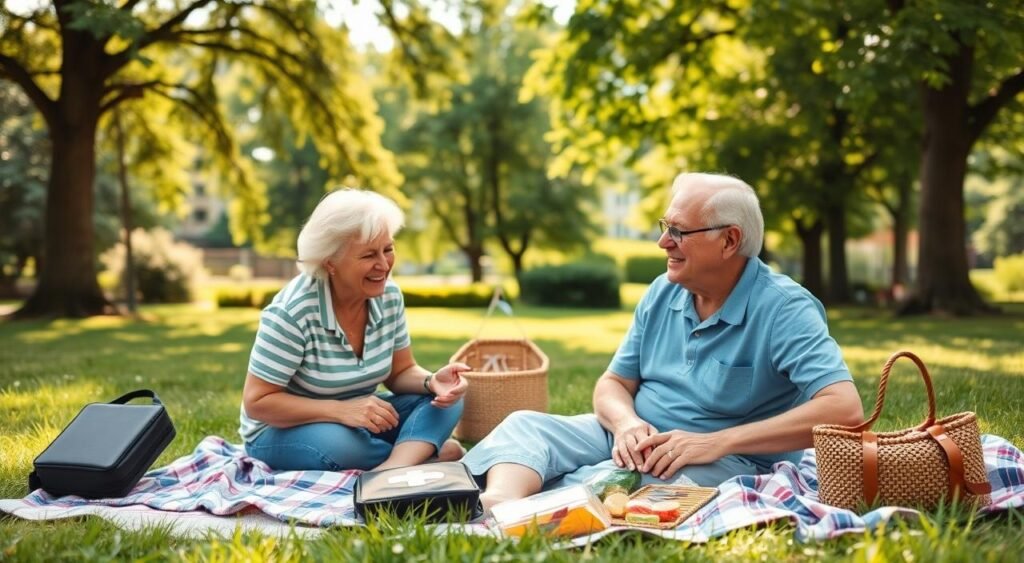
Exercising and Stretching
Keeping up with exercise while traveling can be tough. But it’s key for our health and happiness. We can stay fit by doing exercises that don’t need any special gear.
Equipment-Free Exercises
Walking, stretching, and doing bodyweight exercises are easy to do anywhere. Walking is great for seeing new places and getting some exercise. Stretching keeps our muscles flexible and helps avoid injuries.
Bodyweight exercises like push-ups and squats don’t need any equipment. They’re easy to fit into our travel plans.
Preventing Blood Clots
Moving regularly helps stop deep vein thrombosis (DVT), a risk from sitting too long. To keep blood flowing well, we should stretch and wear compression socks. These simple actions help a lot in keeping our blood flowing while traveling.
| Exercise Type | Recommended Frequency | Benefits |
|---|---|---|
| Aerobic | 2.5 hours of moderate exercise per week or 1.25 hours of vigorous exercise per week | Improves heart and lung health, reduces risk of chronic diseases |
| Strength Training | 2 days per week | Maintains muscle mass and bone density, improves independence |
| Balance | Daily | Reduces risk of falls, improves stability |
| Flexibility | Daily, especially after exercise | Improves mobility, reduces risk of injury |
By focusing on travel-friendly exercises and steps to prevent deep vein thrombosis, we can keep our circulatory health while traveling. This way, we can fully enjoy our slow travel adventures.
Reducing Travel Stress
Slow travel can be a great way to lower stress and dive into new cultures. But, it’s important to manage our expectations and take care of ourselves. We should know that no trip is perfect and be ready for surprises.
Learning about local customs, traditions, and language helps us get around new places better. It also makes us more understanding and respectful of the culture.
Managing Expectations
Being open to the unknown is key to less stress while traveling slowly. We need to be flexible and not get too caught up in plans. Recognizing that things won’t always go as expected helps us stay calm and enjoy the moment.
Learning about Local Culture
Diving into the local culture can really help us relax while traveling. By learning about the customs, norms, and language, we can move around more easily and with more respect. This knowledge helps us fit in and connect with locals.
Relaxation Techniques
Adding relaxation practices to our travel routine is very helpful. Activities like deep breathing, meditation, or yoga can help us relax and refresh. Taking breaks to care for our mind and body makes our travel experience even better.
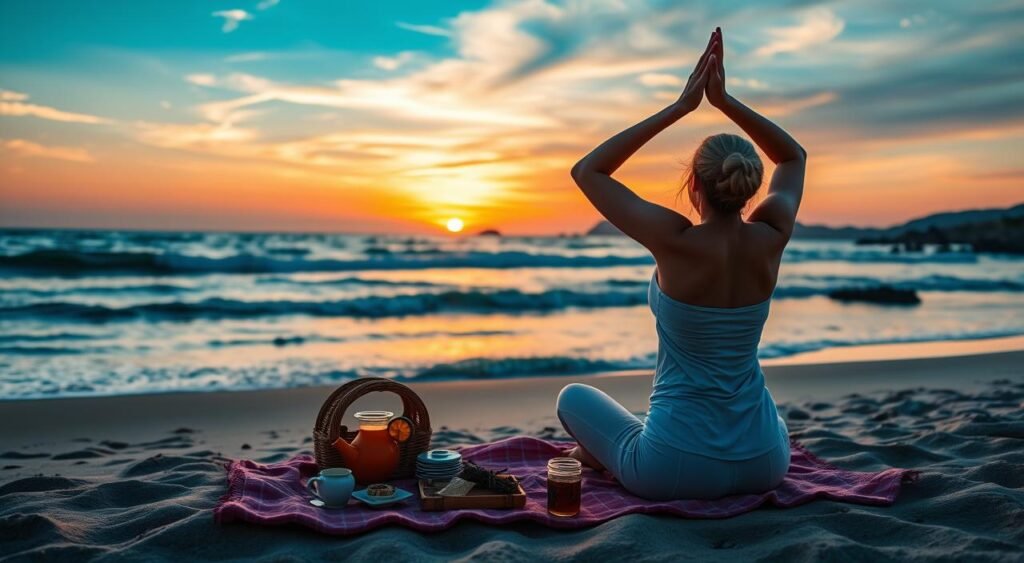
“Travel is not reward for working, it’s education for living.” – Unknown
By managing our expectations, diving into the local culture, and using relaxation techniques, we can enjoy our slow travel more. This mindful way of traveling lets us fully appreciate each moment. And when we return home, we feel refreshed and inspired.
Preventing Travel-Related Illnesses
When you start your slow travel journey, keeping healthy is key. Travelers often face illnesses like bug bites, sunburns, and infections. To stay well, let’s look at some important steps.
Food and Water Safety
Contaminated food and water are common causes of illness. Here’s how to stay safe:
- Avoid raw or undercooked foods, including meats, seafood, and dairy products that may not be pasteurized.
- Steer clear of tap water and opt for bottled or filtered water instead.
- Be cautious of ice cubes, as they may be made from unclean water.
- Thoroughly wash and peel all fruits and vegetables before consuming them.
Insect and Sun Protection
Diseases from insects like malaria and Zika can ruin your trip. To protect yourself:
- Use an effective insect repellent containing DEET or picaridin.
- Wear long, loose-fitting, and light-colored clothing to cover exposed skin.
- Ensure your accommodations have screens on windows and doors to keep mosquitoes out.
- Apply and reapply sunscreen liberally to prevent sunburn and long-term skin damage.
By being careful with food, water, and protecting against insects and the sun, you can have a great slow travel experience.
| Key Preventative Health Measures | Benefits |
|---|---|
| Avoiding raw or undercooked foods | Reduces the risk of foodborne illnesses |
| Using effective insect repellent | Protects against mosquito-borne diseases |
| Applying and reapplying sunscreen | Prevents sunburn and long-term skin damage |
| Drinking bottled or filtered water | Helps avoid waterborne infections |
“Staying vigilant about preventative health measures will help you enjoy your slow travel adventure without interruptions.”
Overcoming Travel Fatigue
When we start our slow travel adventures, it’s key to manage travel fatigue. We do this by matching our sleep to the local time and choosing RVs for travel. This helps us avoid the tiredness that fast travel brings.
RV travel has many perks that help us beat travel fatigue. It lets us travel green and save money, unlike flying and hotels. By slowing down and getting to know local places, we feel refreshed, not drained.
Slow travel is a nice break from today’s fast pace. It lets us enjoy each moment and really appreciate where we are. This makes us feel better overall and less tired from traveling.
“Slow travel allows us to truly connect with the places we visit, fostering a sense of balance and rejuvenation that fast-paced travel often lacks.” – Samantha, travel enthusiast
To fight travel fatigue, we can use relaxation methods like mindfulness. Taking breaks to relax keeps our energy up. This way, we can explore new places with excitement and curiosity.
Slow travel is a great way to fight travel fatigue. By focusing on our health and enjoying our travels, we come back feeling great. Ready for the next adventure, we are.
Conclusion
Slow travel brings many benefits, like less stress and better health. It also helps us connect more deeply with cultures and feel better overall. By focusing on our health before, during, and after travel, we can enjoy our trips without worries.
Whether we’re young or older, these health tips are for everyone. They help us get the most out of our travels. We can stay healthy, enjoy local foods, and relax, all while exploring new places.
As we end our slow travel journey, we know we’ve made it special. We’ve put our health first, making our experiences unforgettable. With these tips, we’re ready for our next adventure, eager to enjoy every moment and make lasting memories.
Source Links
- Adventure is Out There: How to Travel Safely as an Older Adult
- There’s 1 Massive Health Benefit Of Travel That We Don’t Talk About Enough
- Older Adults and Healthy Travel | Travelers’ Health
- Guidelines for the prevention of travel-associated illness in older adults
- 8 Food Safety Tips When Traveling Abroad
- Healthy eating for older adults
- Staying Hydrated, Staying Healthy
- Seniors, stay hydrated in hot weather!
- Must-Know Travel Medical Insurance Tips for Retirees
- Exercise and Seniors – familydoctor.org
- Stepping Out as an Older Adult — Be Healthy, Walk Safely | NHTSA
- Four Types of Exercise Can Improve Your Health and Physical Ability
- Senior Travel: The Benefits and Essential Tips for Your Next Trip | National Church Residences
- Retire Early for Adventure: Travel and Volunteer
- Considerations for Older Travelers
- Travelers with Chronic Illnesses | Travelers’ Health
- The Surprising Mental Health Benefits of Travel for Aging Adults – Crossroads Health
- Jet Lag | CDC Yellow Book 2024
- Top Considerations for Retirees When Purchasing International Health Coverage
- Traveling Towards Disease: Transportation Barriers to Health Care Access
- Frontiers | Vaccines and Senior Travellers

